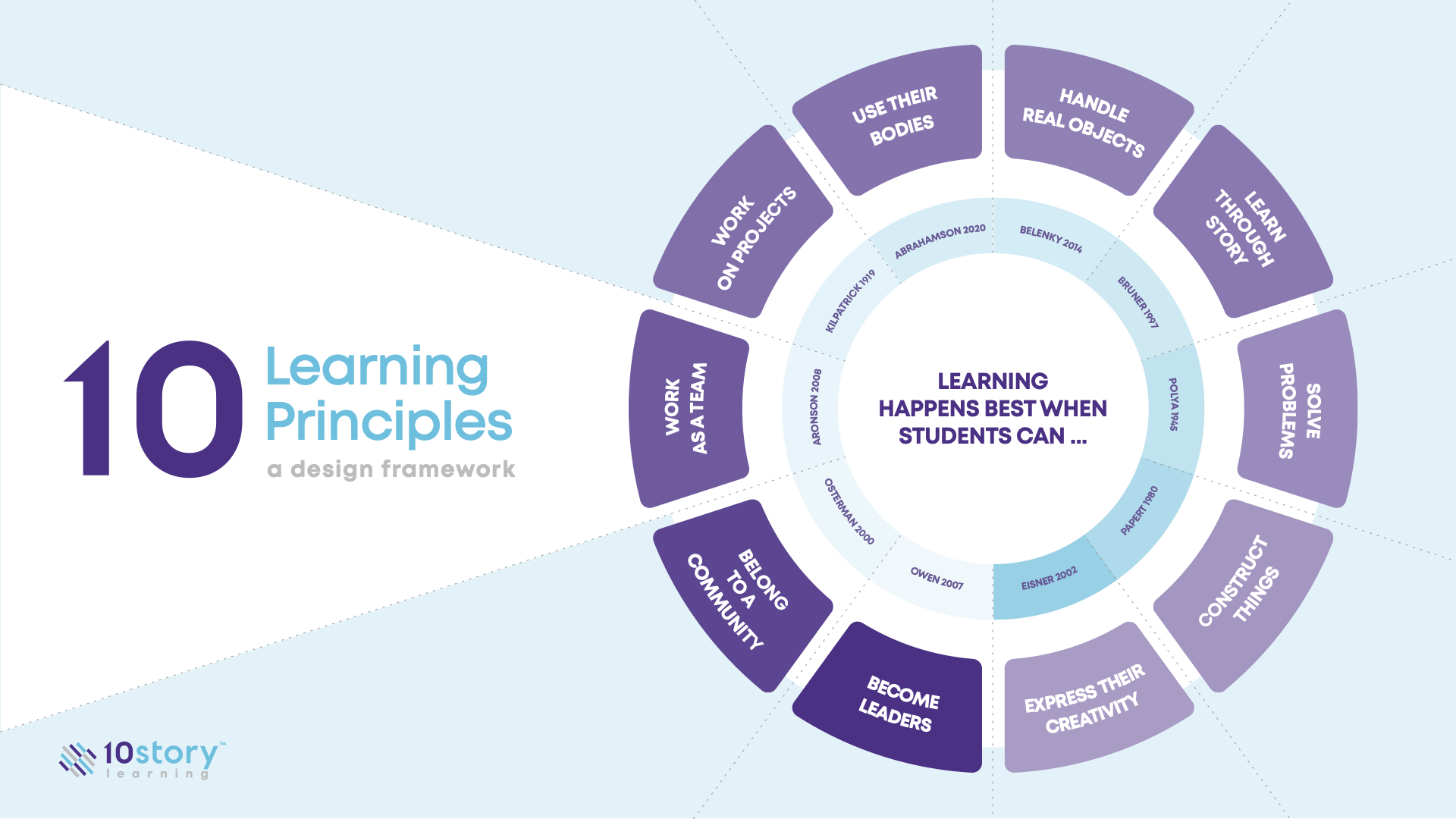Our projects draw on a broad range of research on teaching and learning. From this research, we have identified a set of 10 principles about how learning can occur most effectively.
Through this framework, 10story produces authentic and powerful learning experiences for all students.
REFERENCES
CASEL (2015). Effective social and emotional learning programs: Middle and high school edition. Chicago, IL: CASEL.
Clark, A. (1997). Being there: Putting brain, body, and world together again. Cambridge, MA: MIT Press.
Csikszentmihalyi, M. (2014). Flow and the foundations of positive psychology. Springer Netherlands.
Duit, R. (1991). On the role of analogies and metaphors in learning science. Science Education, 75(6), 649-672.
Egan, K. (1989). Memory, imagination, and learning: Connected by the story. Phi Delta Kappan, 70(6), 455-459.
Goodwin, C. (2018). Co-operative action. London: Cambridge University Press.
Hutchins, E. (1995). Cognition in the Wild. Cambridge, MA: MIT Press.
Kohn, A. (2019). Why can’t everyone get A’s?: Excellence is not a zero sum game. New York Times, June 15, 2019.
Lakoff, G., & Johnson, M. (1980). Metaphors we live by. Chicago: University of Chicago Press.
Langer, E.J. (1975). The illusion of control. Journal of Personality and Social Psychology, 32, 311-328.
Malone, T. W., & Lepper, M. R. (1987). Making learning fun: A taxonomy of intrinsic motivations for learning. In Aptitude, Learning, and Instruction (pp. 223-253).
Mellin, L. (2020). The Stress Solution: A Revolutionary New Method for Emotional Resilience. San Francisco: EBT, Inc.
Meyerhoff, P. (2023). Constructive Interaction: A Process Model of Project-Based STEAM Learning. Paper presented at the annual meeting of the American Educational Research Association, Chicago, April 2023.
National Research Council. (2013). Education for life and work: Developing transferable knowledge and skills in the 21st century. Washington, DC: National Academies Press.
Newen, A., De Bruin, L., & Gallagher, S. (2018). 4E cognition: Historical roots, key concepts, and central issues. The Oxford Handbook of 4E Cognition, 2-16.
Papert, S. (1980). Mindstorms: Children, computers, and powerful ideas. New York: Basic Books.
Paul, A.M. (2021). The extended mind: The power of thinking outside the brain. Boston: Mariner Books.
Piaget, J. (1948/1973). To understand is to invent: The future of education.
Piaget, J. (1952). The origins of intelligence in children. New York: International University Press.
Stevens, R. (2012). The missing bodies of mathematical thinking and learning have been found. Journal of the Learning Sciences, 21(2), 337-346.


